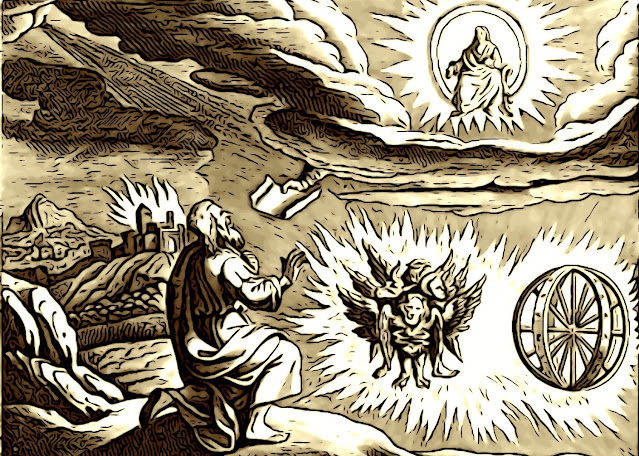Anthropomorphism and the Beatific Vision

James L. Kugel describes two distinct concepts of God in the Bible (pp. 107-118). The early Hebrew God is a tribal deity, proudly superior to Ba'al but still a face in a polytheistic crowd, possibly paired with a goddess. He wasn't the sole god but merely the god that his chosen tribe was obliged to worship no others "before" (Exodus 20:5). Like Athena, Apollo, and Santa Claus, he is supernatural but corporeal, a gendered person with hands and feet, a front and a back, located in time and and space. In Genesis 2-3, after creating the world, Yahweh breathes, speaks, walks with audible footsteps, and can't see Adam and Eve when they hide. The same corporeal deity, appears on Mount Sinai--a particular place at a specific time, refuting his omnipresence--and tells Moses, “When my glory passes by, I will put you in a cleft in the rock and cover you with my hand until I have passed by. Then I will remove my hand and you will see my back; but my face must not be s...




